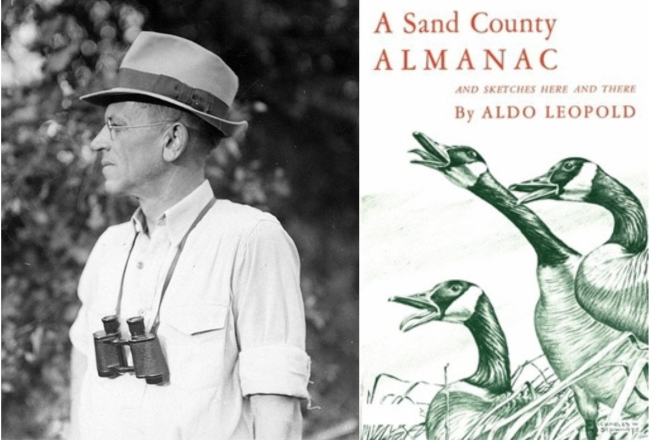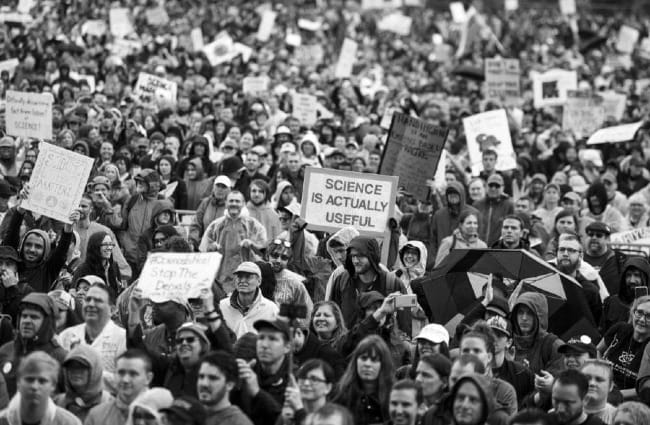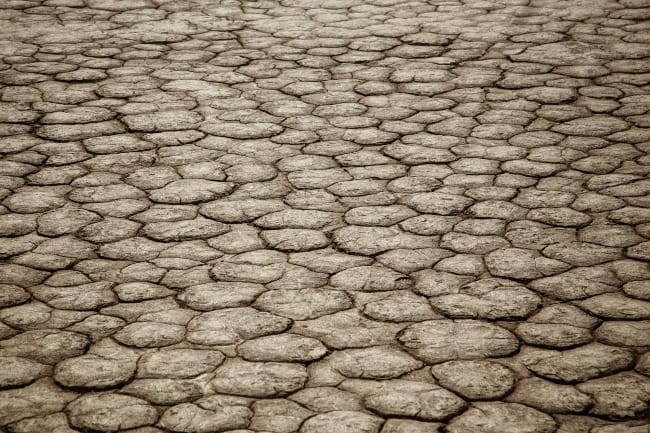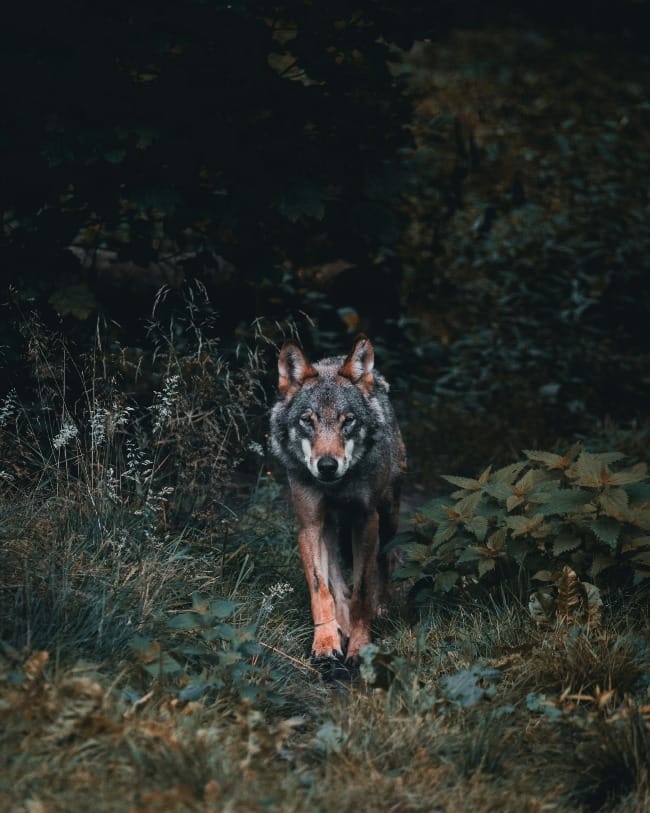This is the fourth and final installment of a short series in which I share pieces of prose that have significantly shaped how I see the natural world and my relationship to it. In this column, I look at Aldo Leopold's book of essays, A Sand County Almanac.

Although A Sand County Almanac is now considered a seminal book on land ethic and conservation in America, it took time for it to reach that stature. Published in 1949, 15 years before Silent Spring sparked the environmental movement, its ideas were alien to a society focused on expansion, manifest destiny, building homes and rebuilding families after the Great Depression and World War II. People were eagerly embracing the thrust of “progress” and less eager to hear from a voice pointing out the downsides of this progress.
Leopold was a scientist, a forester, a professor in the field of wildlife management, and the owner of an 80-acre family farm where he was putting his ideas of land management into practice. He died there, fighting a brushfire on a neighbor's property, just after A Sand County Almanac was accepted for publication.

It wasn’t until the 1960's that Leopold’s words began to take hold with a wide audience. The book's popularity grew as the environmental movement gained ground, with the growing recognition that “progress” carried some heavy costs. Leopold's call for a radical shift in American priorities and behavior became easier to accept as his scientific observations and conclusions became more evident to those who were not ecologists.
Then-Secretary of the Interior, Stewart Udall, (who was instrumental in environmental legacies such as the Clean Air Act), stated that "if asked to select a single volume which contains a noble elegy for the American earth and a plea for a new land ethic, most of us at Interior would vote for Aldo Leopold’s A Sand County Almanac." The book continued to gain momentum until it became a mainstay of environmental education.
Sounding the Alarm
Leopold was an astute observer of his Sand County farm, and his essays contain fascinating and lovely descriptions of the natural world and his experiences within it. He wanders among the flora and fauna with great stores of knowledge and affection so that reading his essays is rather like being handed a set of binoculars by someone who then eloquently illuminates what you are seeing.
This illumination includes insight into the historical patterns and changes that had happened before his time, were at that time happening, and what it meant for the future. This includes the loss of diversity and health in the ecosystem that occur as pavement and monoculture take over. With economics as the only measuring stick of value, the characteristics of the land, as well as the inhabitants that seemed to serve no obvious human purpose, were seen as expendable, or even worse than expendable.

The marshlands that once sprawled over the prairie from the Illinois to the Athabasca are shrinking northward. Man cannot live by marsh alone, therefore he must needs live marshless. Progress cannot abide that farmland and marshland, wild and tame, exist in mutual toleration and harmony…So with dredge and dyke, tile and torch, we sucked the cornbelt dry, and now the wheatbelt. Blue lake becomes green bog, green bog becomes caked mud, caked mud becomes a wheatfield. (A Sand County Almanac, @ Aldo Leopold, 1949).
As Leopold pointed out, danger occurs when we don't recognize our own ignorance. Because we don't know how things work together, and don't recognize that we don't know how things work together (or even that things do work together) we cavalierly discard things. This might be apex predators like wolves or nondescript weeds such as Draba, which we don't see as valuable...to us, which is too often the only measure of value used.
We can conclude that everything would be simpler and better without pests or predators or bugs or weeds (or beavers or yellow jackets or rats or you fill in the blank) are eliminated. The problem with this kind of thinking is that everything in the ecosystem is connected; you can't throw out one piece without affecting all the rest of the pieces and the system as a whole.
Conservation is a state of harmony between [sic] men and land. By land is meant all things on, over, or in the earth. Harmony with land is like harmony with a friend; you cannot cherish his right hand and chop off his left. That is to say, you cannot love game and hate predators; you cannot conserve the waters and waste the ranges; you cannot build the forest and mine the farm. The land is one organism. Its parts, like our parts, compete with each other and cooperate with each other. The competitions are as much of the inner workings as the co-operations. You can regulate them—cautiously—but not abolish them…. To keep every cog and wheel is the first precaution of intelligent tinkering.
Leopold, as a scientist, saw where the real health of the land lay—in the life it hosted, from the microscopic life wigging invisible in the soil to the birds nesting in the treetops. Diverse life signals healthy relationships and healthy relationships signal a resilient and adaptable environment.
Poor land may be rich country, and vice versa. Only physical economists mistake physical opulence for riches. Country may be rich despite a conspicuous poverty of physical endowment, and its quality may not be apparent at first glance, or at all times.
Leopold argued against reducing land and its inhabitants merely to the particular use humans might put them to rather than seeing them as signs of the health or unhealthiness of the land.

That wildlife is merely something to look at or shoot at is the grossest of fallacies. It often represents the difference between rich country and mere land.
The Burden of Sight
Sometimes a person with the clearest vision of what is going wrong is also the one who suffers the most. When you see a train wreck that is about to happen, but are powerless to stop it, your options are limited. You can choose to turn away so that you don't have to watch it, or you can try to alert others to the danger, which can often be unpopular, thankless, and only minimally effective. Leopold found himself in this position as he watched and documented the destruction of the environment through rampant extraction of resources, industrialization, encroachment, and other forms of human progress. There was so much happening, so many pieces being destroyed, that he couldn't, by himself, keep that change at bay.
One of the penalties of an ecological education is that one lives alone in a world of wounds. Much of the damage inflicted on land is invisible to laymen. An ecologist must either harden his shell and make believe that the consequences of science are none of his business, or he must be the doctor who sees the marks of death in a community that believes itself well and does not want to be told otherwise.
Redefining Our Place
There are many parallels between what was happening in the mid-20th century and what is happening today. We again (or still) have changed our environment in a way that we did not foresee. For convenience and profit, the true costs of destroyed habitat, denigrated land, and fragmented ecosystems are often downplayed or discounted. Even as climate change is sinking islands and changing weather patterns, there are, as always, those who would rather not listen to how current practices are hurting the health of our planet. Profit and convenience are often chosen over responsibility and harder choices that would increase short-term financial cost in exchange for long-term health.
One of Leopold’s greatest contributions in his writing was a more holistic view of our place in the world. He called for a land ethic in which human ethics included human-earth relations as well as human to human relations. In his thinking this perspective "changes the role of Homo sapiens from conqueror of the land community to plain member and citizen of it. It implies respect for his fellow-members, and also respect for the community as such."
In probably his most well-known quote of the book, Leopold sums up what makes an action right or wrong in terms of our relationship with the entirety of creation.
"A thing is right, when it tends to preserve the integrity, stability, and beauty of the biotic community. It is wrong when it tends otherwise."
This simple statement, if adopted as a measure of ecological right and wrong, could dramatically change our approach to the concerns that currently surround us. This is true in our individual choices when we ask ourselves, "Is the choice I'm making contributing to the stability of the earth's systems or is it contributing to its destabilization?" It also certainly needs to change the approach of communities and nations. "When people with knowledge and wisdom point out ways that my community and nation are causing damage, what can I do to challenge that community and nation to make better choices? What can I do to amplify the voices that need to heard?
Feel free to leave a comment below or contact me directly at louise.conner@circlewood.online.
Louise
Want to learn more?
Find out more or support our parent organization by clicking below.